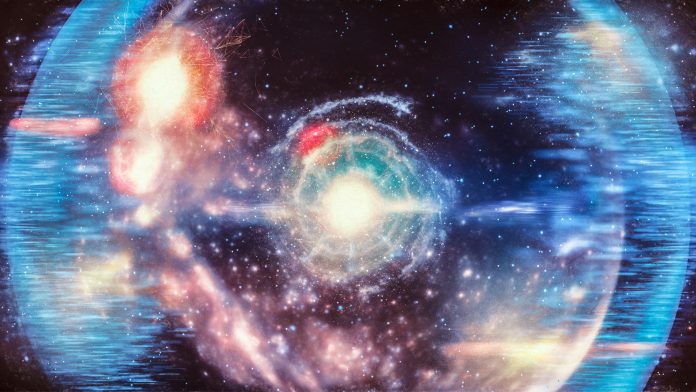According to astronomers, a burst of gravitational waves hit our planet and we still do not know where they came from or why.
A mysterious cosmic event occurred on January 14, according to scientists this event may have slightly stretched and squeezed the Earth. The origin of this burst of gravitational waves is still unknown.
The Laser Interferometer Gravitational-Wave Observatory (LIGO) and the Virgo interferometer picked up the signal of the gravitation wave which lasted around 14 milliseconds.
Gravitational waves can be caused by the collision of massive objects, such as two black holes or neutron stars. Previously, neutron star collisions have caused gravitational waves in 2017 and 2019.
Gravitational waves from collisions of such massive object last longer and manifest in the data as a series of waves. These waves change in frequency over time as the two orbiting objects move closer to each other according to Andy Howell, a scientist at Los Cumbres Observatory Global Telescope Network and an adjunct faculty member in physics at the University of California, Santa Barbara, USA.
Analysing data without being part of the study, Howell said the new signal was not a series of waves but a burst. One likely possibility is that this short-lived burst of gravitational waves comes from a more transient event such as a supernova explosion, the catastrophic death of a star.
Astronomers have hypothesised that this could be a signal from the Betelgeuse star, which, according to scientists, mysteriously dimmed recently and is expected to undergo a supernova explosion. However, this scenario is unlikely because astronomers have reported that this star is still there.
According to Howell the burst “seems a little too short for what we expect from the collapse of a massive star…On the other hand, we’ve never seen a star blowing up in gravitational waves before, so we don’t really know what it would look like.” Additionally, the astronomers did not detect neutrinos, a tiny subatomic particle that carry no charge, which supernovas are known to release.







